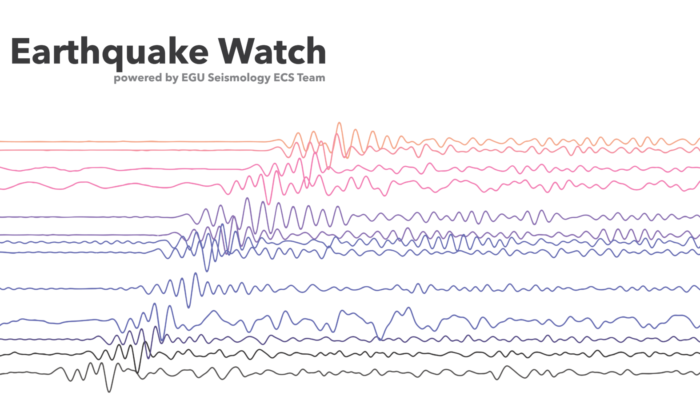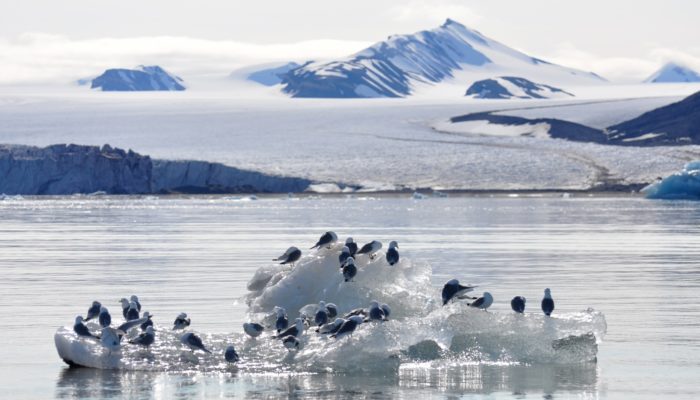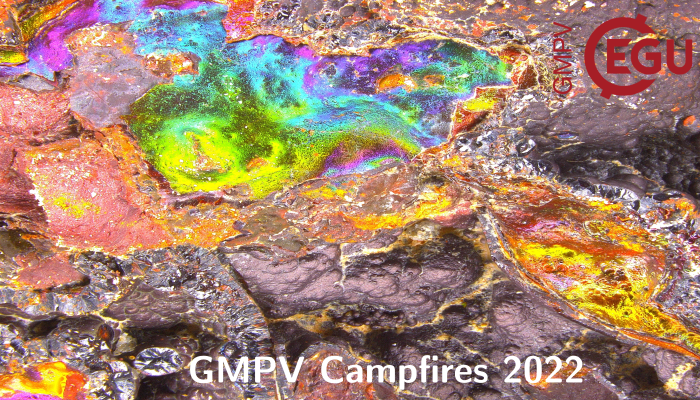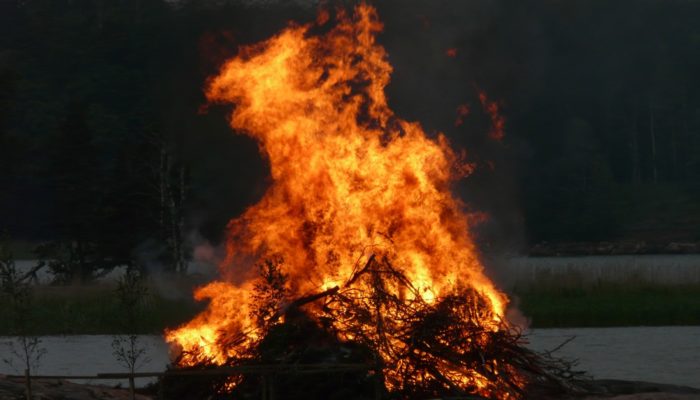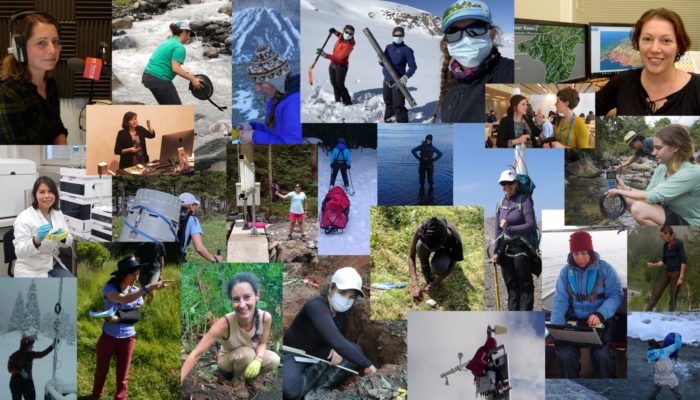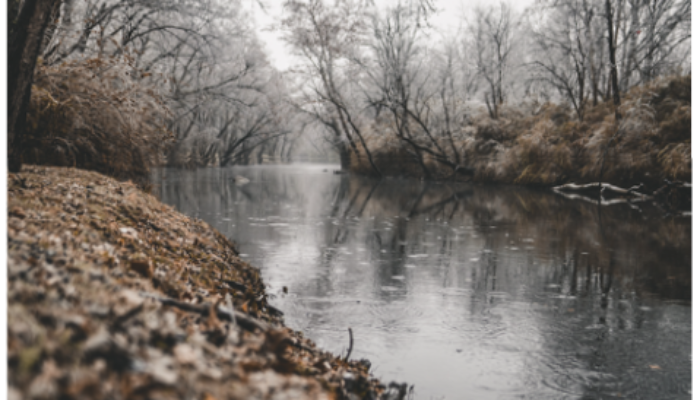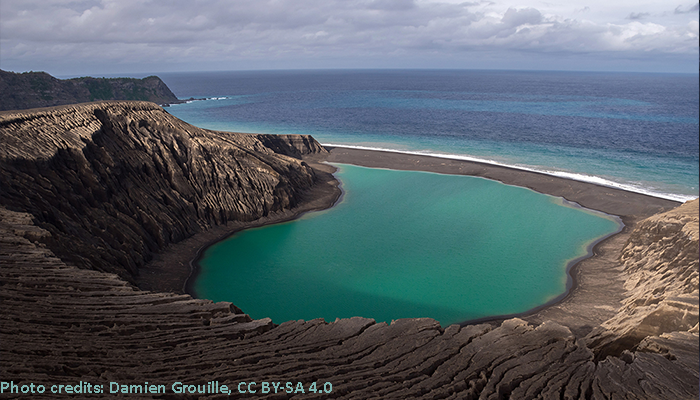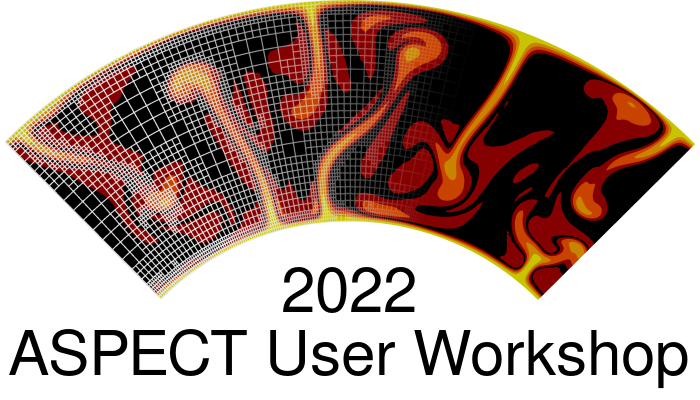Dee Ninis, an Earthquake Geologist and Seismologist from the Seismology Research Centre of Australia, outlines the 22 September 2021 Mw5.9 Woods Point, Australia earthquake for the first Earthquake Watch of the year. On 22 September, 2021 at 09:15 AEST (2021-09-21 23:15 UTC) a moderate earthquake of Mw 5.9 near Woods Point, Victoria, shook southeast Australia. Felt reports were received from as fa ...[Read More]
Cryospheric Sciences
A place called home?
Welcome to Kongsfjorden in Svalbard. The front of the glaciers terminating into the sea is an ecological hotspot, home to many marine animals, like kittiwakes, who love to hunt here. They feed on small fish and shrimp, which at marine-terminating glacier fronts are brought to the surface by upwelling glacial meltwater. Retreating glaciers lose their contact with the ocean As the planet warms these ...[Read More]
Geodynamics
GeoLchat: el experimento de divulgación científica bilingüe hecho por tres geocientíficas colombianas
GeoLchat: A Bilingual Science Communication Experiment of Three Colombian Geoscientists Una de las cosas más importantes que se les enseña en la academia a los estudiantes de ciencia alrededor del mundo es aprender a usar el lenguaje científico. Sin embargo, nunca se les enseña a hablar acerca de ciencia en un lenguaje sencillo, y tampoco a comunicar y divulgar sus investigaciones en lenguajes dif ...[Read More]
Geochemistry, Mineralogy, Petrology & Volcanology
EGU GMPV Campfires 2022
The GMPV Campfires are back this year with a new schedule of fascinating online talks and discussions! We thank everyone for presenting their research and for attending our talks so far. If you have any suggestions, please, take a moment to fill in this very quick feedback form. Please see the following dates for our exciting new events in 2022. April 2022: General format (Four speakers) – ...[Read More]
Geodesy
EGU Campfire Geodesy – Share Your Research – Fourth Edition
We all welcome you around our fourth EGU Geodesy Campfire to listen to two exciting talks by Early Career Scientists (ECS) Marcello Passaro and Kevin Gobron. The Geodesy EGU Campfire Events “Share Your Research” will give early career researchers the chance to talk about their work. Below you can find detailed descriptions about their talks. We will have time for networking after the presen ...[Read More]
Hydrological Sciences
International Day of Women & Girls in Science
Today is the 8th International Day of Women and Girls in Science. We use the opportunity to simply show you who we are and how we work. How do you picture a scientist? The GeoLog publishes a selection of interviews with women scientists. Links to other related EGU Blog entries: 2021 GFGD Blog on the International Day of Women and Girls in Science 2020 HS Blog on How Do You Pic ...[Read More]
Geodynamics
The Sassy Scientist – Trumping Regrets
To leave or not to leave (academia)? If I had a penny for every time I heard the various declinations of this question…I would have left academia. Gisele has thoughts about a specific aspect of this topic and joins the choir: How do you leave academia without feeling like a failure? Dear Gisele, You cannot. But then again, it’s better to feel like a failure and cry about it in a Lambor ...[Read More]
Cryospheric Sciences
Climate change and cryosphere – A wetter future for the Arctic
The latest climate models show that Arctic precipitation is changing more rapidly than previously projected with an earlier transition to a rainfall-dominated precipitation. This rapid change in precipitation will have huge implications for the Arctic ecosystem as well as those who live within the region. Arctic precipitation change, why is it so important? The rapid change in Arctic climate, from ...[Read More]
Geochemistry, Mineralogy, Petrology & Volcanology
An Overview on the 15 Jan 2022 Hunga Tonga-Huna Ha’apai Eruption
Since 15 January 2022, the islands of the Tonga archipelago and surrounding territories have been suffering the effects of what has turned out to be one of the biggest eruptions of this century. The eruption occurred on Hunga Tonga-Hunga Ha’apai, an island created by the emergence of a large submarine volcano. HTHH is located among the ~170 islands of the Kingdom of Tonga and about 65 km nor ...[Read More]
Geodynamics
2022 ASPECT Users Workshop
On January 19th and 20th, ASPECT had it’s annual virtual user workshop. With more than 60 participants, the virtual workshop has grown quite a bit since it started in 2020. This two day world-wide virtual event was full of great developments and showing exiting new applications in which ASPECT is being used. I will give here a short summary of the topics which where presented and discussed, ...[Read More]

